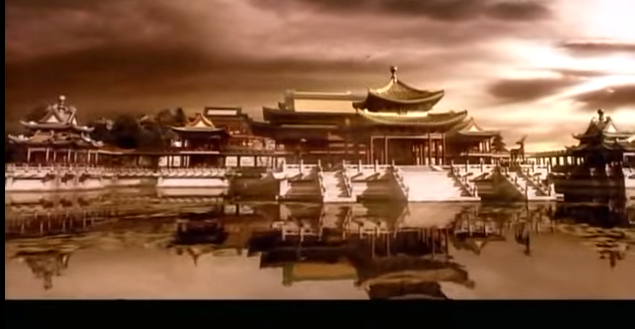Ang Lee’s 2007 film, Lust, Caution, received attention for a number of reasons. The number of trophies it received internationally could have sated even the most ardent trophy collector’s appetite. It also received attention for its graphic, achingly realistic ten-minute sex scene between two main characters, which reportedly took over 100 hours to shoot. People praised the movie’s elegance and the performances. But one issue with the movie is that people defined it as an espionage thriller. But that marketing choice does not address one of the most fascinating aspects of the story: the “love” story.
Lust, Caution, based on a novella by Chinese author Eileen Chang, primarily takes place from 1938 to 1942 during the Japanese occupation of Shanghai. From its trailer and synopsis, it appears to be a love story with gorgeous cinematography and period costumes, but it’s something much darker in the end. A young woman, Wong Chia Chi (Tang Wei), escapes from Shanghai to Hong Kong for safety and begins her studies at Lingnan University. There, she follows a classmate, Kuang Yu Min (Wang Leehom), into the resistance movement. Kuang, Wong Chia Chi, and a group of other students develop a plot to kill Mr. Yee (Tony Leung Chiu-Wai), the leader of the secret police of China’s puppet government propped up by the Japanese. When Mr. Yee moves to Shanghai, so does the operation. The plan is to have Wong Chia Chi pose as Mrs. Mai, seduce Mr. Yee, and have him in a position for the co-conspirators to kill him. Of course, complications arise when “Mrs. Mai” develops an emotional connection with Mr. Yee, and their twisted relationship may unravel the entire operation.
“Lust, Caution” was originally written by Eileen Chang, a prolific Chinese author. Chang’s work is marked by precise, evocative language and a deep-seated pessimism in regards to human relationships. The portraits of “love” in her works rarely feature grand romantic gestures and instead focus on people’s selfish, fickle natures and the sharp edges of emotional connections. Moreover, the world that she creates in her fiction is one that is irredeemably desolate with just enough flashes of goodness to keep despair alive when goodness does not win out.
This loyalty to the tone of the source material does this espionage thriller a world of good. Tony Leung Chiu-Wai skillfully portrays Mr. Yee’s hard, cold brutality towards Mrs. Mai. Remarkably, instead of leaving the viewer repulsed, his actions leave room for intrigue. For example, during a particularly rough sex scene between the two, despite the fact that his actions are violent and steely, by the end, the viewer gets to see just enough tenderness to understand that he is not a complete monster.
That’s because Chiu-Wai takes advantage of the small moments and actions to give his monstrous character some humanity. He doesn’t make Mr. Yee out to be an antihero; his actions make it very clear that this is a violent, self-serving man. Rather, Chiu-Wai maintains an aloofness while giving the viewer quick peeks at Mr. Yee’s humanity. This comes through the most in a scene at a jewelry shop where Mr. Yee gives Mrs. Mai a diamond ring. His tone remains flat and he doesn’t smile, but his eyes betray an affection that is so strong that one has to look away; the sudden intimacy is just that jarring.
On the other hand, a diamond ring and a doting look do not love make. In any case, it isn’t clear whether or not Mrs. Mai loves Mr. Yee. The murkiness between her role as a spy and her role as his lover constantly makes the viewer wonder who she is pretending to be, and sometimes, whether she is pretending at all. Tang Wei’s portrayal is rooted in Mrs. Mai’s portrayal in the book, and in the novella, Mrs. Mai’s character, whose perspective guides the book, is almost completely inscrutable. However, Tang Wei improves upon it by betraying slightly more emotion– enough to humanize her a bit more, but not the point where, by the movie’s end, we can say that we sincerely know her. It’s hard to even tell if Wong Chia Chi even gets lost in Mrs. Mai because we’ll never know where Wong Chia Chi begins and Mrs. Mai ends.
This question of whether we’re seeing Wong Chia Chi or Mrs. Mai is maintained by Tang Wei’s skillful performance. Like the world in Eileen Chang’s writing, the viewer gets to see just enough to remain intrigued and invested and too little to feel that they can begin to predict the character’s actions. When we see her interact with Mr. Yee, she remains cautious and affectionate and it’s difficult to tell whether it’s acting for the sake of the movement or the rather normal process of falling in love. Tang Wei gives us a character that is unknowable without being flat, and perhaps it’s because in a way, she gives us two characters who are inseparable.
That sense of the unknown in plain sight is a palpable source of tension in the film, even aesthetically. There are shadows, because what espionage thriller would be complete without them? But the movie is mostly composed of sharp details that end up creating more unease than outlines of figures in the dark. This is a period thriller composed of trench coats and stern faces, yet it’s also a relatively well-lit one that shows us banal, dull street scenes in quick cuts that leave the viewer’s heart racing. The camera work makes perfectly normal scenes and interactions feel disorienting and ominous.
Unlike conventional thrillers, the tension in Lust, Caution does not come from car chases. Its tension is rooted, in fact, more in the tradition of romantic movies. Its tension comes from the same “Will they or won’t they (kill each other)?” question that serves as the driving force of love stories. However, the movie invites another question as well, which is, “Is this love at all?”

